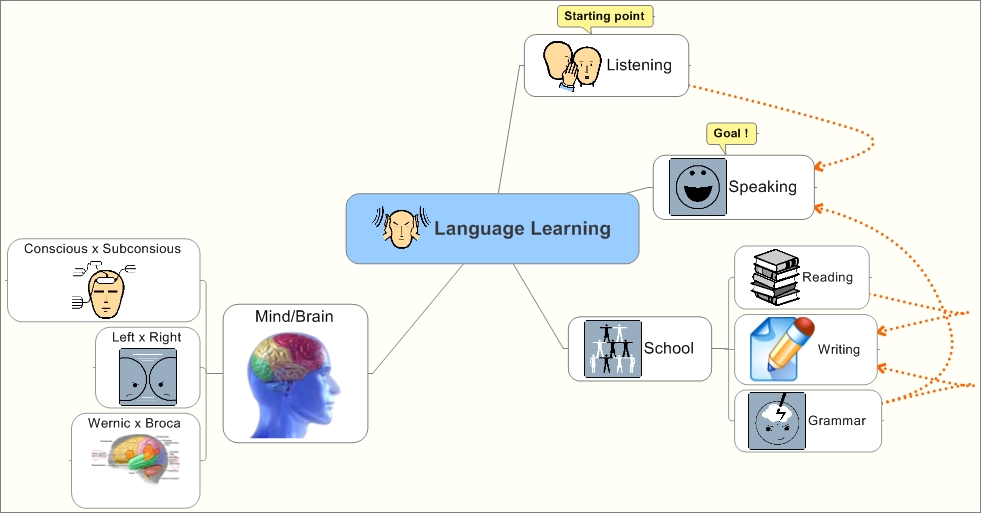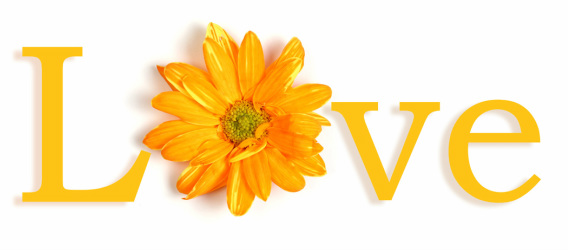|
The best way not to be brainwashed is to do it for yourself on your own. For those who understand the Czech language - do not hesitate and look here Enjoy!
1 Comment
They say that there is only one question, one significant question, and if you know the answer to that question, all other questions are already meaningless. I can tell you for sure that: “What is the difference between Sandokan and Children from Bullerbyn?” (LOL) … is not that question. But let's focus today on (others) less significant questions and ideas concerning language learning. In this post I will give you some of them and I will not answer them. Intentionally. Maybe you have noticed that every answer brings only more questions to ask. Maybe you have also noticed that somebody else's answers to YOUR questions somehow don't work too. Ask - yes – ask, but do not expect immediate answer. Ask, be attentive and the answer will come – one day (or night). The authentic YOUR answer will come. Here is a few questions and ideas (that I can recall now) to ponder over. Maybe they will give you some inspiration, maybe some insight or just fun:
By answering the LAST (literaly) question you would solve the ultimate puzzle and all previous (and sequential) answers would become irrelevant. But would it be fun without it anymore? Maybe the glimpses of that answer are (for us, here on this planet and NOW at this moment) enough, don't you think? Everybody says that LOVE is good, beautiful, magnificent... but SELF-LOVE? Some people have somehow negative connotations implanted in their heads about it. They think that it is some kind of selfishness, egoism or something like that. But it does not make any sense. Love is only one and it is similar to the LIGHT which radiates out of its source without any distinguishing, to all directions, it is unconditional and for everybody. It has it source and that source is inside of YOU, it radiates outside and it radiates inside too. I listen every morning these beautiful meditative affirmations by Luise L. Hay. I have been listening them for years, so I memorized it. Hopefully some of them came also into my subconscious mind. I would like you to enjoy them too:
Deep at the center of my being, there is an infinite well of love. I now allow this love to flow to the surface. It fills my heart, my body, my mind, my consciousness, my very being, and radiates out from me in all directions and returns to me multiplied. The more love I use and give, the more I have to give. The supply is endless. The use of love makes me feel good, it is an expression of my inner joy. I love myself; therefore, I take loving care of my body. I lovingly feed it nourishing foods and beverages, I lovingly groom it and dress it, and my body lovingly responds to me with vibrant health and energy. I love myself; therefore provide for myself a comfortable home, one that fills all my needs and is a pleasure to be in. I fill the rooms with the vibration of love so that all who enter, myself included, will feel this love and be nourished by it. I love myself; therefore I work at a job I truly enjoy doing, one that uses my creative talents and abilities, working with and for people I love and who love me, and earning a good income. I love myself; therefore, I behave and think in a loving way to all people for I know that that which I give out returns to me multiplied. I only attract loving people in my world, for they are a mirror of what I am. I love myself; therefore I forgive and totally release the past and all past experiences and I am free. I love myself; therefore I live totally in the now, experiencing each moment as good and knowing that my future is bright and joyous and secure, for I am a beloved child of the Universe and the Universe lovingly takes care of me now and forever more. And so it is. This is Luise Hay and I love you. by Louise Hay, from "You Can Heal Your Life" http://www.hayhouse.com And here you can see my own version – me reciting by heart ;-) What, the hack, have these words in common? You could ask. They have a lot of in common – it is the essence of language learning. I wrote about mistakes and making mistakes in my previous post, so today just shortly, maybe a small complement. If you want to do (and learn) something new, perhaps slightly but new, it is natural that you are not very good at it and what is the result? At the beginning you make more mistakes than if you were engaged in your usual rut (normal, well known) activity. You cannot avoid these mistakes, or better to say, you can but you will move only in a circle – no learning, no movement forward. It is up to you, you can choose. Children make more mistakes than we adults and the result? No need to comment. So, allow yourself to make mistakes and this way you will allow yourself to learn. Some people unfortunately struggle with this approach. I would like to share a short story concerning this topic with you. I know a young woman. She is a beautiful, clever, very intelligent and successful woman. I noticed that she has a small board with English vocabulary hanging on the wall in her office above her desk. We made a small chat about it. She has been learning English for a while, she is attending some courses... Her young boy is also learning English at school. He could be 12 or similar age and he is probably at lover level of language knowledge than she (his mother) is. One day he downloaded some move in original (English) language. They both started watching it. She told me one thing that struck me at that time and I had to think of it. She told me that she was VERY FRUSTRATED by not understanding it well and that her boy was on the other hand quite well and at ease. He told her that he can catch the meaning what is going on in that movie. He was fine, she was frustrated. After a short time she even finished watching it at all. He enjoyed it to the end. What happened? Yes, movies are not easy stuff for learning foreign languages... I could write about it more and I will do maybe in some next post, but now I would focus on the approach of those two „learners“. She wanted to understand fully, every word, 100% and it was not possible! She did not allow herself to make any mistakes. Yes, if you do not understand well, some parts, or nearly anything – it is a mistake. What else? She did not allow that. She a bit a perfectionist. And her learning process stopped – for that moment because of too many mistakes she were doing and was not able to accept. But what about to put it upside-down? What if she would see it differently? She could see that she can UNDERSTAND SOMETHING! That there is already some progress, some knowledge, something to be GRATEFUL for. And we have here the gratitude. It is much better feeling than the frustration. Much better approach for learning the language, isn't it? Gratitude, appreciation, joy, love, acceptance, peace or... shortly feeling well instead. And despite those mistakes you can continue to learn and you can enjoy the process at the same time. You are at FLOW! It applies not only for language learning. They say “learn from mistakes”. I agree with that. I had always been for this approach but a few days ago I realized something that changed completely my paradigm. It was kind of AHA-moment! I see it now differently and if it is true, it has significant implications. So, I told myself that I must share it with you.
Look at the sentence itself, and look attentively - “LEARN FROM MISTAKES” Can you see it? The answer is there… and is in the middle. The answer is “FROM”. I realized it in the morning, before being fully awaken. Still in my bed. I realize that maybe better would be to say “learn AWAY FROM mistakes”. What I want to say? I want to say: do not pay so big attention to your mistakes. If you are aware of your mistake, OK, but go forward. If you speak, for example, continue, do not stop, do not return to that mistake. Focus yourself to activity itself, do not waste energy, go ahead. There will be a lot of mistakes and a lot of opportunities to say it right way. Later. I see those mistakes just like some stepping stones we use for moving to the higher levels. If you are running upstairs you would not turn back all the time. This way you would either significantly slow down your pace or you would finish your activity quickly with an accident. Imagine yourself that you are a small boy or girl and you have a new bike. You are learning to use it, to ride it. It is not easy in the beginning. Maybe you have fallen. It was an error. Will you focus on that error so much, all the time, to be afraid to fall again, to think how not to fall, why you fell…? With this attitude you would probably never learn how to bike at all. I think that children (fortunately) have a little bit different approach. The child can see a friend biking and do it the same way, do what works, and after some difficulties, gets skills to do it quite right. There is no need to analyze initial troubles too much. This way the children learn naturally. The same it is with learning to walk or to speak their mother tongue. At school it is somehow else. The teacher marks errors by red color and all attention (energy) is focused on them. It is so big problem! But I see it now as an artificial problem. It is not a problem of the student but a big problem of the school system itself! The focus in on a bad side, the negative side. The side where the energy is wasted like in some “black hole”. What I would suggest? I would suggest even to use different terms for those mistakes or errors – maybe something like “nearly right”, “half right”, “partially right”... After all this is a process of learning and it will improve gradually and automatically. Look at small children. Do we correct them this way too when they learn their mother tongue? What they (and we learners) need are only right models to imitate and those mistakes gradually disappear (on its own accord). The obsession with the “correctness” leads only to lack of fluency and destroys natural zest for language. It creates in us the notion that the language learning is something difficult, unpleasant and probably even beyond our possibilities. It prevents us from using the language with joy and without using it we cannot actually learn it well. So, let those errors be just the errors… LET THEM BE! AND LET THEM GO! The biggest error would be not to do these errors, I mean not to speak or write, or read, or listen the best way we can. Always do your best, no less, no more. As you could maybe noticed in my previous posts, I frequently say that the best teacher for languages is listening, and especially listening to native speakers. The native speakers can serve us as real role models - we can imitate and learn from them. Yes, who else could be better for this purpose? The answer is paradoxical – a NON-NATIVE speaker! It is true that the perfect pronunciation, the right stress, the melody of voice, the nice fluency and the rich vocabulary... we can find usually in the speech of a native speaker. But keep in mind that the majority of users of English language in this world today are non-natives. You are also one of them (probably). The English we are learning is intended to be the mean of communication. You will use is with both natives and not-natives. I found in some stage of my English journey (and my friends confirmed me my experience too) that in many cases is the listening to somebody who was not born in English speaking country quite demanding. In some cases more difficult than listening to any native Englishman or American or Australian. Sometimes it could be quite a challenge. We, language learners, usually complain that the natives talk too quickly. In my opinion it is not the biggest problem. Maybe the bigger is the slang and idioms. Of course, the listening needs some practice (like everything). My point is that the listening to a non-native speaker could be a good practice, a good valuable exercise. Of course that the bulk of your study should be based on a “proper” English, especially in the beginning of your journey. But after while you do it I would suggest to incorporate non-natives too. I remember myself when I started to listen Osho for example. It was really a challenge for me. Fortunately there were transcripts available. After while I accustomed to his pronunciation, voice, vocabulary. By the way his vocabulary is quite rich. It is true that he does (maybe I should say DID – he passed away a long time ago) some mistakes while speaking. But is it a problem? Definitely not for him. Maybe even we, who are learning English, can gain from that - noticing them a learning from these errors. On the other hand, I would be careful to listen such materials too early. There is a possibility to learn this incorrect English (we usually do at school from our school mates anyway) By the way not to forgot to read my disclaimer :) There is a lot interesting people on this planet and you can speak (read or write) with nearly all of them in English, there is a lot of materials in English available today. Some of them were created by not-native speakers and are worthy to listen or read (e.g. this blog :-) LOL) One of another such people I like to listen is Deepak Chopra (born in India) Enjoy this short video (extract from Deepak Chopra - How to know God)
The transcript:
Around 1890 chief Crowfoot a Blackfoot Indian was dying and he whispered into the ear of a missionary father: What is life? It is the flash of a firefly in the night. It is the breath of a buffalo in the winter time. It is the little shadow that runs across the grass and loses itself in the sunset. Life as we know it flickers out all too fast In death we return to the light, the source where we all began Then, all of reality has only one source You are that source God is our highest instinct to know ourselves. The Persian mystic poet Rumi once said, When I die I will soar with the angels, And when I die to the angels, What I shall become you cannot imagine. Stephen Covey used to say: “Listen first to understand and then to be understood” I fully agree with him! I am nearly obsessed by listening and I will explain to you why. At least I will try to do it here. From my opinion the language is a SOUND. If it is not, it is not any language. And the sound must be acquired by listening, how else? We start to learn it from the beginning of our life, some say that even before we are born (prenatal stage). I do not know, I cannot confirm, because, to say the truth, I do not remember it. But what I know for sure is that we leaned it exclusively by listening. There is no other way and this way is natural for us as human species. It is natural and it always was. We learn our native language this way. But later, when we are at school or as adults when we try to learn our second language we try to “outsmart” the nature. We already now one language and we can use it to support this process. Yes, why not? Why to invent the wheel again? Yes, it is logical, BUT there is a big trap here! We tend to have everything quickly, to have instant results (not only in case of language learning) We have a tendency to skip natural phases of language learning process and we want to speak, read and write immediately or very quickly. We even want to analyze the language that we hardly know so far – I mean the focus on GRAMMAR – which we learn (naturally), as far as our native language is concerned, of course - LAST. We somehow forgot that we went to school without any ability to read, write and without any grammar rules in our heads. In spite of it we understood and we were able to speak quite well. Simply, but well enough! (After a lot lot of mistakes we have made without making problems from it and without being punished for it) But I would return to my assertion that the language is a sound. Maybe some of you will argue that it could be also TEXT and it is not any sound. I think that the text is only symbolic expression of the sound of the language. Our brain will interpret it back to the narual form of the sound in form of thoughts. When I read I “hear” the sound in my head (or mind). So, reading is actually only different kind of listening (for me). Actually especially the reading ALOUD is very helpful. Do it as much as possible. And what about speaking? It is thinking aloud which produces the SOUND of language. It goes without saying (idiom). And it is the listening too. You can listen what you are saying and your partner in communication also listens. Sometimes, I will tell you maybe something strange, but sometimes when I speak and that speech is quite spontaneous, unprepared, I listen myself with a big interest. In many cases I am quite surprised what I have just said. Mostly pleasantly surprised I can say. And very useful is so call SELF-TALK (aloud). If it is not aloud it is thinking (or not?). Our method BrainSpeakActivator is actually based on this kind of activity. And listening has a big significance here too! Actually it will improve your listening as well speaking. But you could say that writing is not definitely about any sound. So, I see it as a process of a text creation. And the text is a symbolic representation of language, the sound. Similar to reading. It could be also seen as “speaking on paper”. It is based on sound of language and it is produced back by reverse process of reading. So, isn't it in essence the sound? From my point of view, it is. The Fifth Agreement by Don Miguel Ruiz is says: “Be skeptical but learn to LISTEN”. So, be skeptical. I do not say that you should believe me or agree with me. Just think of it. Listen to your thoughts (and do it in English if possible:-) Here you can see an interesting video concerning the listening skill First of all, I would like to stop for a while and return to children and their “miraculous” abilities to learn languages. Some teacher told me few weeks ago (he wrote a replay to my post) that they are not so bright as far as learning languages is concerned according to his experience as I declared. He wrote that the children are just comparable to adults. After some time the answer came to me. I had kind of AHA MOMENT and now I already know. It is because of our school system. We cripple the natural abilities of children to learn languages (and maybe not only to learn the languages) and maybe this is not happening only to our children. Their spontaneity, joy from new, zest to learn… all this is unfortunately suppressed and distorted. J.A.Komensky (who was born in my country) would not be very happy. You can read more about this topic at Jesus used to say: "Be like a child" This AHA moment came when I was reading this words of Tony Buzan in his book “Use your memory”: “Children are not any better at learning languages than adults; they simply open their minds more to the language and are not afraid to make mistakes. They repeat and make associations with the basics, listen more attentively, copy and mime, and generally have a thoroughly good time without as much instruction as we adults think we need.” Such a short and at the same time fruitful paragraph! Thank you, Tony, you are a genius.
The KEYWORDS are: -open mind -not afraid make mistakes -repeate -listen -copy / mime -(feel) good -without much instruction IT'S THAT SIMPLE An Italian economist Vilfred Pareto (you can Google more) discovered that roughly 80% of the effects come from 20% of the activities. Does this rule applies to learning languages, in our case English? It goes without saying! Of course it applies. 20% of our learning activities bring us 80% of results. But a BIG question is: What are those activities?
In this post I will give you some of my opinions concerning especially learning the VOCABULARY. Some of them might be true, some of them need your correction which is welcome.
Learning vocabulary the way we usually do does NOT belong to those 20% (green) activities which bring so good results. I see here at least these problems:
b) bind strangely those words together which are not meant to be binded (collocate) in language naturally
b) for us as unique human beings
This is only a few points, maybe you can find more and I would be able probably too, but for our purposes it is already enough to say that this is not the right way to learn foreign vocabulary. Sorry guys. I would suggest at least these modification:
So, what is that Pareto's rule as far as vocabulary and language learning is concerned? In essence it is: Learning by the ears from native speakers in bigger language units repeatedly interesting materials and delegating most of time consuming repetitive activities to subconscious mind. Speaking comes later – using proper methods. And what about the grammar? I would say that it comes last (some say not necessary at all) Learn the language not about the language! Learn by doing. Learn the particular activity by doing that particular activity itself. And it was my case today. Thank you for that opportunity. Today I will let talk about language learning a well know author and philosopher Bob Proctor. He featured in the movie The Secret and he will reveal to us (perhaps a little surprisingly) the secret behind learning languages. Maybe you have this man associated with money, wealth, the law of attraction and this kind of things. Yes, actually this YouTube presentation is all about it. I just allowed myself to separate some parts which are significant for our purpose. Hopefully Bob will not be very angry with me about it. You can see the full version of Bob's presentation here Just a few words about money. Yes, it is important aspect of our life. Some people try to deny it, some overexaggerate it. Both extremes are just extremes. Money plays a significant role in our life of course. But life is not only about money and to be candid it is not only about English too. Life is multidimensional. Be in balance. So, Bob, tell us more: Do we learn languages the similar way? Is languages learning more conscious or unconscious process? Don't we use wrong parts of our brains to learn languages? Think of it! Any comments? |
AuthorSelf-employed computer specialist and Qigong practitioner MIND MAP nAVIGATION
Archives
December 2013
Categories
All
Be in touch
|
||||||||||||||||||
| You can search our website here |


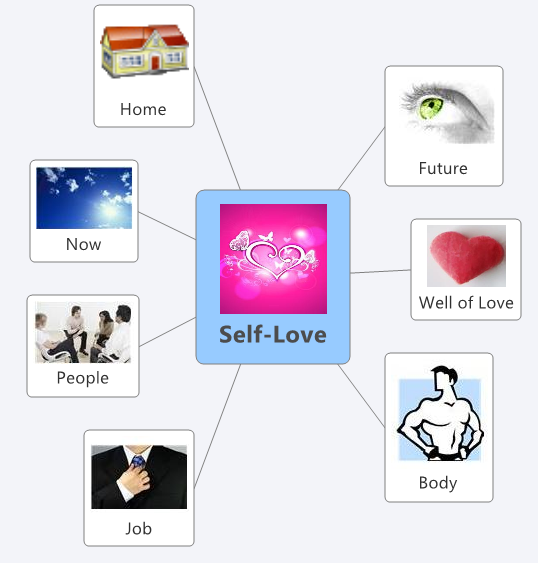

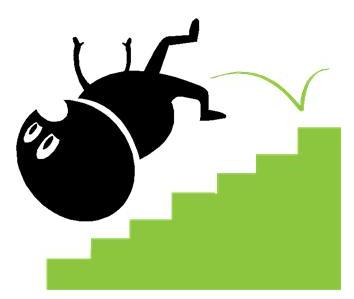

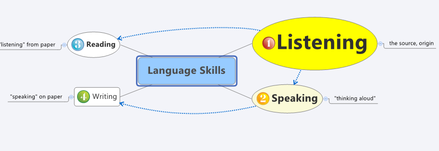


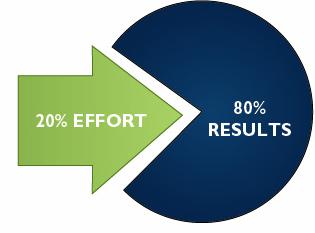
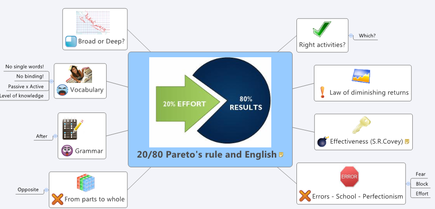



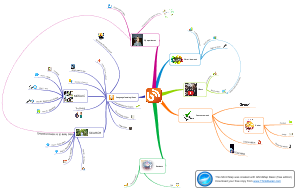
 RSS Feed
RSS Feed
